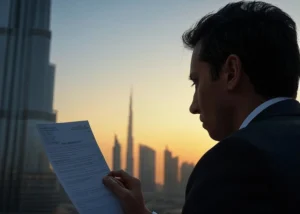Understanding real estate laws in Dubai is essential for buyers, sellers, landlords, tenants, and investors. Dubai’s real estate sector is governed by a robust legal framework designed to protect all parties involved in property transactions. Below is an overview:
- Key Regulatory Authorities
- Dubai Land Department (DLD): The primary authority overseeing real estate activities in Dubai.
- Real Estate Regulatory Agency (RERA): A subsidiary of the DLD, responsible for regulating the real estate sector, including brokers, developers, and owners’ associations.
- Ownership Laws
- Freehold Ownership: Non-UAE nationals and expatriates can purchase freehold properties in designated areas. Freehold ownership allows for complete ownership of the property, including the land, without a time limit.
- Leasehold Ownership: Provides the right to use the property for a term of up to 99 years but does not include ownership of the land.
- Property Purchase Process
- Title Deed Registration: Property transactions must be registered with the DLD, and a title deed is issued to the new owner.
- Initial Contracts: Buyers and sellers typically sign a Memorandum of Understanding (MoU) outlining the terms of the sale.
- Oqood Registration: For off-plan properties, developers must register sales agreements with the DLD using the Oqood system.
- Off-Plan Property Laws
- Developers must be registered with RERA.
- Buyers must make payments through an escrow account approved by the DLD to ensure funds are used solely for the development project.
- Rental Laws
- Governed by Law No. 26 of 2007, amended by Law No. 33 of 2008.
- The Dubai Rental Dispute Settlement Centre (RDSC) resolves rental disputes.
- Rent increases are regulated using RERA’s Rental Index Calculator, which sets caps based on market rates.
- Owners’ Associations
- Developers are required to establish owners’ associations for jointly owned properties. These associations manage communal areas and ensure maintenance is carried out effectively.
- Mortgages and Financing
- Non-residents can obtain mortgages in Dubai, subject to regulations by the UAE Central Bank.
- Loan-to-Value (LTV) ratios are capped (e.g., 80% for UAE nationals and 75% for expatriates for first homes).
- Dispute Resolution
- Real estate disputes are resolved through the RDSC, arbitration, or courts.
- Buyers can seek legal recourse if developers fail to meet project timelines or other contractual obligations.
Notable Cases and Guidelines
- Emaar Properties vs. Investors: Clarified the rights of off-plan property buyers when projects are delayed.
- Tenancy Contract Disputes: Cases handled by the RDSC often emphasize the importance of registering tenancy contracts with Ejari.
Resources for Further Information
- Visit the Dubai Land Department (DLD) for comprehensive guides.
- Use RERA’s Rental Index to calculate fair rents.
- Seek professional legal advice for property disputes or complex transactions.






